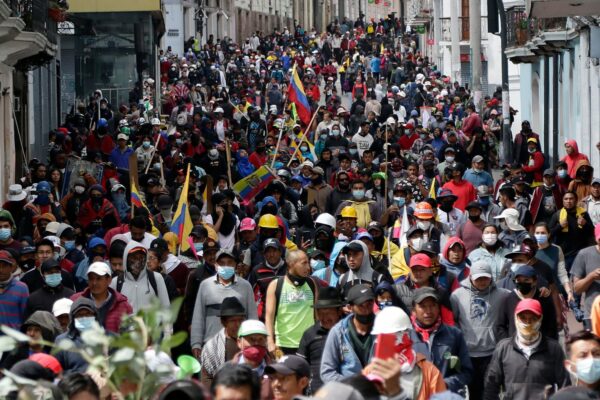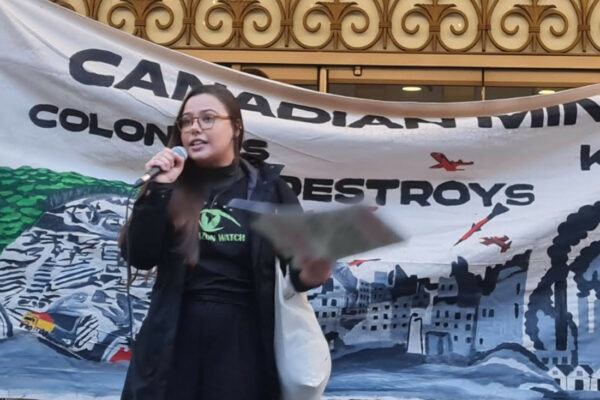Quito, Ecuador – The Ecuadorian government rolled back fuel prices today to quell an Indian uprising that resulted in four deaths in 10 days of clashes between demonstrators and police and caused an estimated $300 million in damages and lost revenue.
President Gustavo Noboa’s administration, which came to office 13 months ago after a similar uprising that led to military intervention and the resignation of his predecessor, also promised to release more than 500 Indian protesters over the next few days and lift a state of emergency that was decreed Friday.
“This is a triumph,” said Luis Chango, 19, an Indian from Cotopaxi province, about 60 miles from Quito, the capital. “It shows that we are strong and can defend our rights.”
Although the conflict may be over for now, the Indian groups that organized the protests have shown they are still a force to be reckoned with, and Noboa has been scathed politically, analysts here said. Tough military and police tactics against the protesters recalled the chaos surrounding the January 2000 coup that ousted Jamil Mahuad from the presidency and led to Noboa’s taking office.
According to a local survey, Noboa’s approval rating has fallen since then to a low of 28 percent.
“The government has been considerably weakened, mainly from the repression tactics adopted at the beginning,” said Cesar Montufar of Andean University in Quito.
The Indians’ rage underscored the huge difficulties faced by any Latin American leader who attempts to restructure a sagging economy by cutting subsidies and other social spending. Indians, who represent between 20 percent and 25 percent of Ecuador’s 12.5 million people, are stuck at the bottom of the economic ladder and get hit particularly hard by fiscal austerity.
According to government data, the poverty rate rose from 70 percent of the population to 79 percent last year following the switch in March to the U.S. dollar as the national currency. The change was a last-ditch attempt to control hyperinflation and prevent economic collapse.
Despite what is estimated to be a 3.9 percent economic growth rate last year, unemployment and underemployment have remained punishingly high. The minimum wage is fixed at $132 a month, but few Indians make even half that, and soaring inflation in 2000 eroded purchasing power.
An International Monetary Fund mission is in Quito to pursue talks before it releases an additional $50 million of the $304 million standby loan agreed to last April. It is still waiting for Ecuador to comply with IMF requirements, primarily a deeply unpopular tax package that would raise the value-added tax from 12 percent to 15 percent, before it makes more funds available.
The steps announced today – a 20 percent price cut for domestic cooking gas and a freeze on fuel prices for the rest of the year – may not cause a gaping hole in the budget. But if tax changes are not approved, IMF and other multilateral lending could be revoked, leaving massive spending cuts as the only way to resolve fiscal imbalances.













